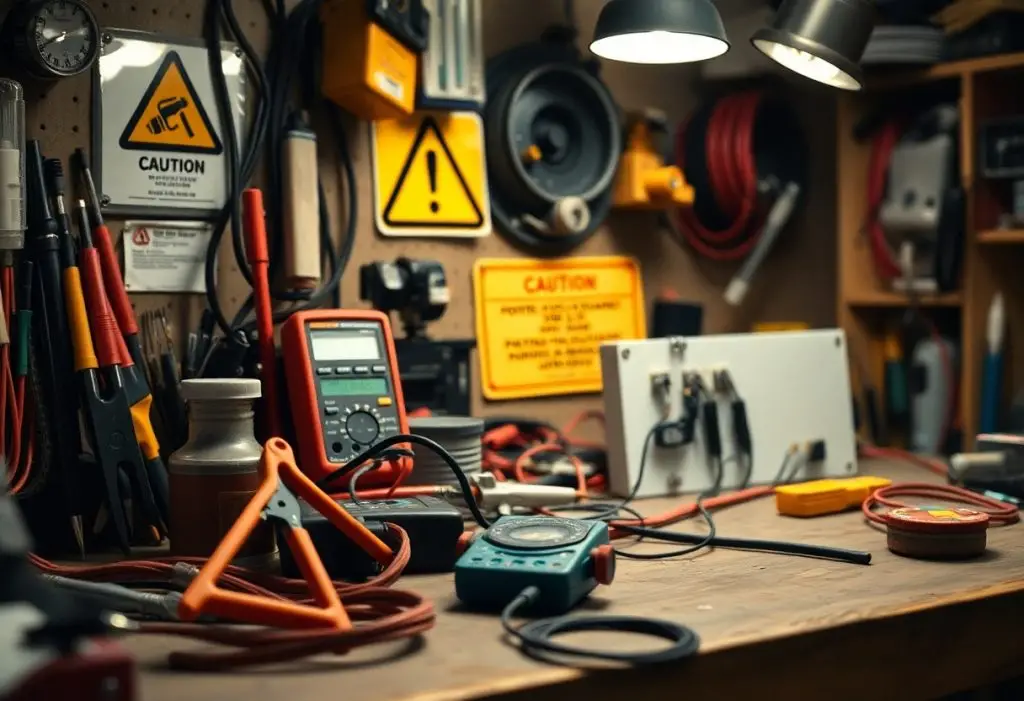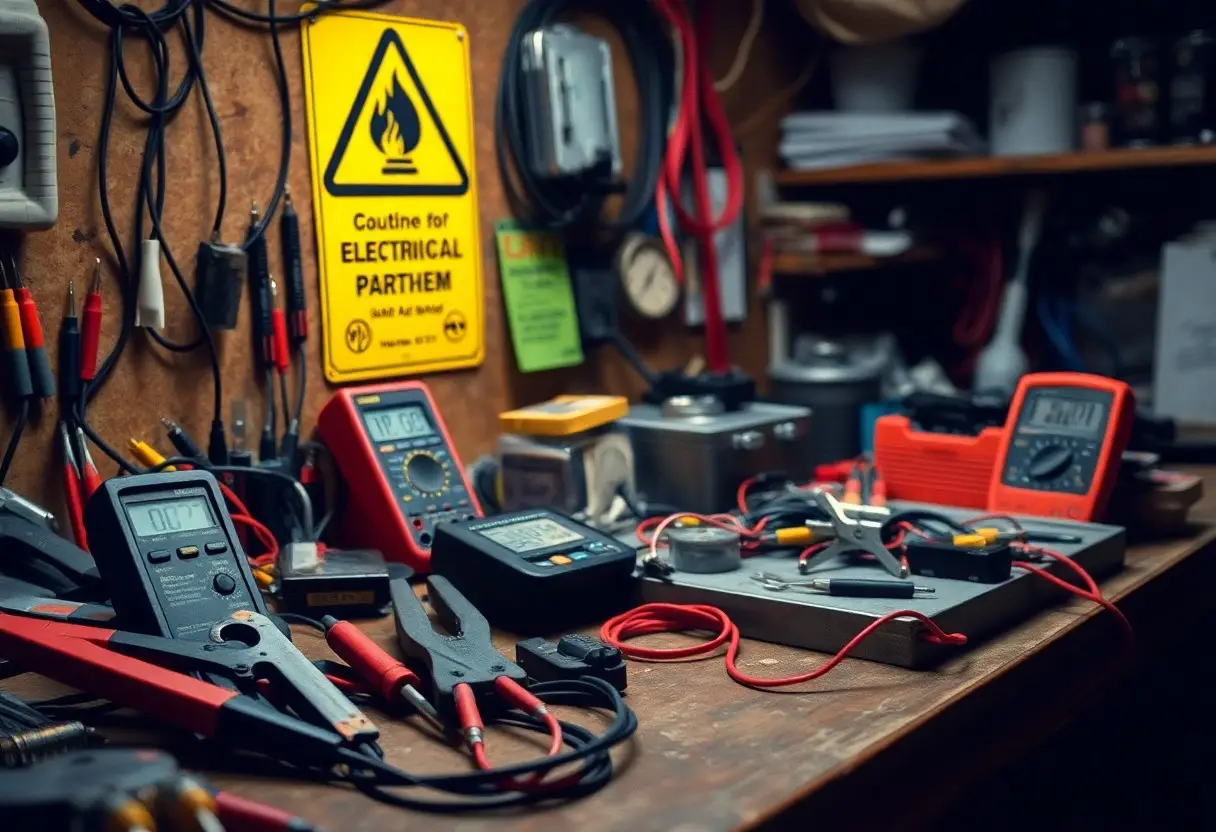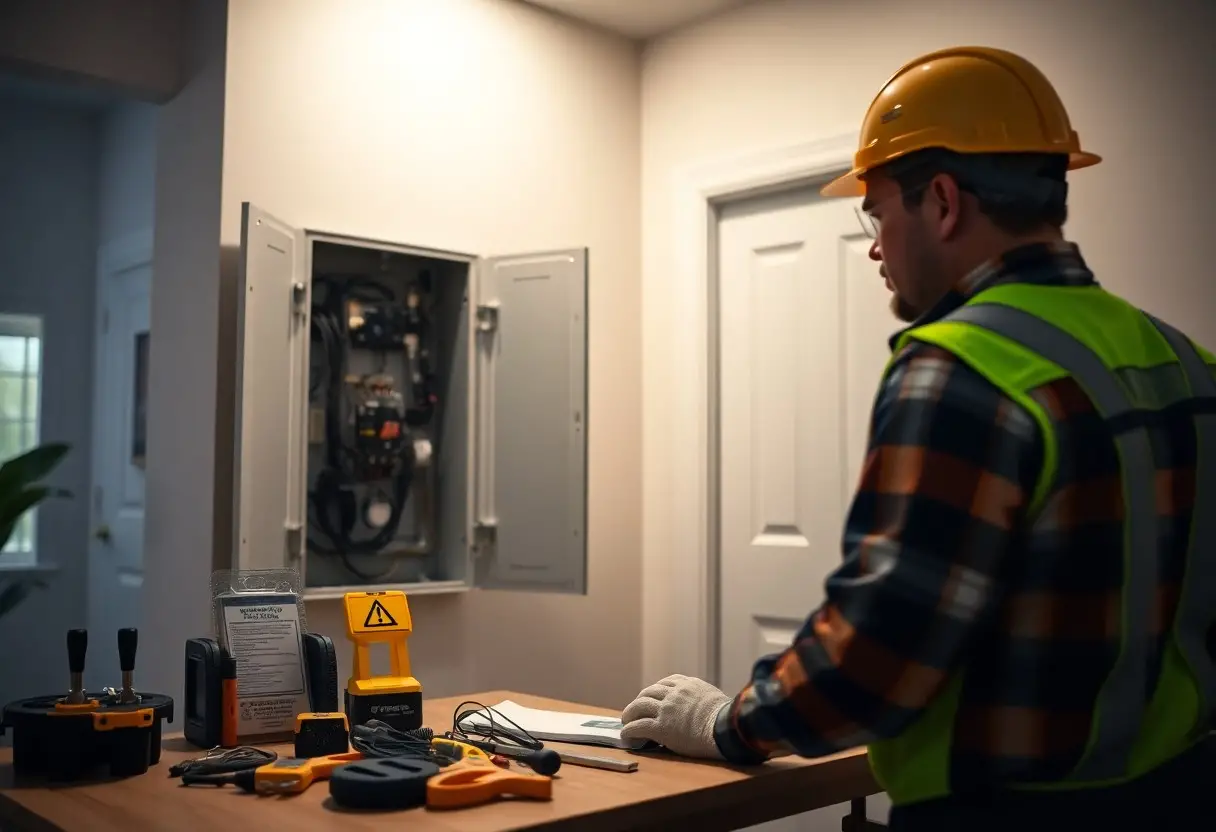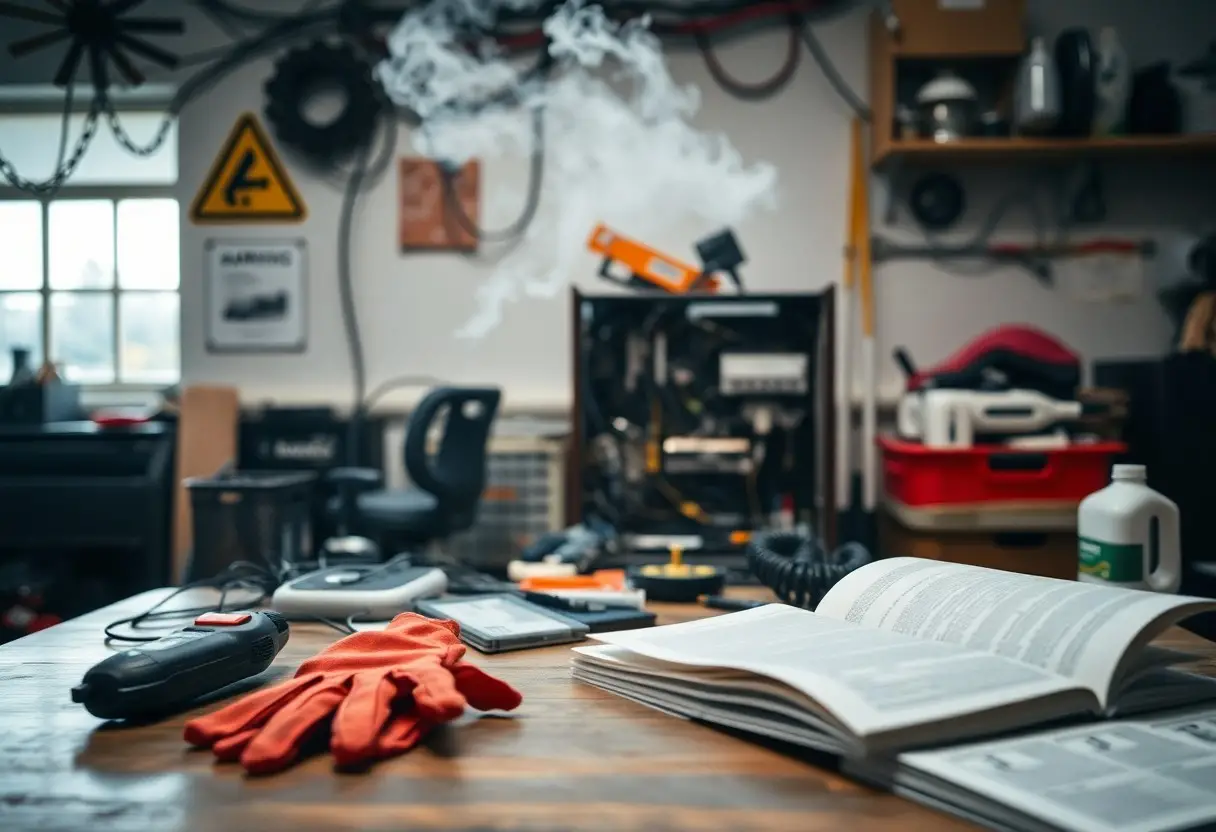There’s a growing trend of homeowners attempting DIY electrical projects, often in a bid to save money or gain skills. However, you should be aware that such endeavors can pose significant risks, including potential hazards like electrical fires and shock. In this post, we will explore the dangers associated with DIY electrical work and present safer alternatives you can consider, ensuring your home remains both functional and safe.
The Alarming Statistics of Electrical Mishaps
Statistics reveal a troubling reality regarding electrical accidents. Federal data indicates that approximately 51,000 home electrical fires occur annually in the United States, resulting in around 500 fatalities and over 1,400 injuries. These incidents cause nearly $1.3 billion in property damage each year, underscoring the potential dangers associated with improper electrical work. The numbers reflect a stark reminder that taking your chances with DIY electrical projects can lead to disastrous consequences.
Frequency of DIY-related Electrical Accidents
DIY-related electrical accidents happen far more frequently than you might think. According to the National Fire Protection Association, nearly 35% of all electrical fires can be traced back to improper installation or repair, often performed by unqualified individuals. You might feel confident taking on these tasks, but the reality is that many homeowners underestimate the hazards involved, leading to serious accidents.
Demographics Most Affected
Certain demographics are more vulnerable when it comes to electrical accidents, particularly those who engage in DIY projects without adequate training or knowledge. Statistics show that younger individuals, especially males aged 18 to 34, make up a significant portion of those involved in electrical mishaps. This demographic often feels a sense of confidence in tackling home improvement tasks, despite lacking professional expertise, increasing their risk of accidents.
Moreover, demographic factors such as household income and educational background influence the likelihood of engaging in DIY electrical work. Homeowners with limited technical training or lower socioeconomic status may attempt these projects to save money, which can result in dangerous, life-threatening situations. Moreover, many novice homeowners lack awareness of local codes and safety standards, increasing their risks of electrical mishaps. Knowing these trends can help you navigate your own home improvement decisions and avoid unnecessary hazards.
Common Misconceptions That Lead to Dangerous DIY
Many homeowners fall prey to misconceptions about DIY electrical work that can lead to hazardous situations. A mix of bravado and misinformation can give a false sense of security, resulting in poorly executed tasks that compromise safety. It’s easy to see how confidence can overshadow the complex nature of electrical systems, often with dire consequences that leave you—literally—in the dark.
The Myth of Cost-Savings
Believing you can cut costs by handling electrical repairs yourself often leads to more significant expenses down the line. While initial savings may seem appealing, accidents and code violations can incur hefty fines or repair bills. Issues such as faulty wiring can cause extensive damage, increasing your spending in both repairs and energy inefficiency.
Misjudging Skill Levels and Risks
Your confidence in tackling DIY projects can cloud your assessment of the skills required for safe electrical work. Just because a task appears straightforward doesn’t mean you have the necessary knowledge. Many underestimate the intricacies involved, leading to simple errors that can result in serious consequences, such as electrical fires or electrocution.
Your background or experience in home improvement doesn’t always translate into expertise for electrical work. For example, a minor mistake like reversing wires or using incorrect gauge wire can lead to overheating, short circuits, or even a complete electrical failure. The danger escalates if you encounter outdated codes or unforeseen complications, which can quickly escalate beyond your capabilities. It’s crucial to recognize that professional electricians undergo extensive training and certifications to ensure safety and compliance. Seeking their expertise can not only save you from potential hazards but also provide peace of mind that the job meets legal standards.
Cracks in the DIY Armor: Assessing Your Knowledge Gap
Your confidence in tackling home electrical projects may lead to oversight regarding your expertise. Identifying areas where your knowledge falls short can prevent dangerous outcomes. DIY electrical work requires a sound understanding of principles such as voltage, current, resistance, and circuit design. Even basic tasks like changing a light fixture can turn perilous without this background, unveiling the risks associated with operating outside your knowledge base.
Key Electrical Concepts Every DIYer Should Know
Having a foundational grasp of electrical terminology is non-negotiable for DIYers. Understanding concepts such as Ohm’s Law, the function of circuit breakers, and the distinction between series and parallel circuits can significantly affect the safety and efficacy of your work. Knowledge about grounding, voltage ratings, and load calculations also plays a pivotal role in avoiding hazardous situations during electrical installations or repairs.
Signs That Indicate You Should Call a Professional
Encountering frequent tripped circuit breakers, flickering lights, or encountering the smell of burnt wires signals it’s time to consult a professional. If you find yourself unsure about how to proceed after beginning a project or developing an overwhelming sense of anxiety about electrical work, those are also clear indicators that assistance is necessary. The risk of electrocution or fire increases dramatically when these signs are present, emphasizing the importance of knowing your limits.
Signs such as strange sounds coming from outlets, discoloration around switches or plugs, and persistent electrical faults warrant immediate attention from a licensed electrician. These red flags not only suggest that you may lack the expertise to resolve the issue safely but also indicate potential hazards that could lead to serious accidents. Prioritizing safety by recognizing when to escalate to a professional can save you from harm and costly repairs down the line.
Safer Pathways: Exploring Professional Alternatives
Choosing to employ a professional for electrical work not only secures your home from potential dangers but also simplifies the project process. Licensed electricians bring a wealth of knowledge and experience, ensuring the task is completed efficiently and safely. They can identify underlying issues that may not be apparent to the untrained eye, offering you peace of mind and potentially saving you from costly repairs down the line.
The Role of Licensed Electricians
Licensed electricians play a critical role in maintaining electrical safety standards. With the correct certifications and training, they are adept at navigating local codes and regulations, which can be complex and vary by region. This depth of understanding guarantees that all electrical work adheres to safety protocols, reducing the risk of fire hazards or electrical failures in your home.
Cost-Effective Solutions: Hiring vs. DIY
While DIY projects often appear less expensive upfront, the reality can unfold differently. Hiring a professional might not only save you from potential pitfalls and unsafe situations, but it can also offer cost-effective outcomes in the long run by preventing expensive errors and ensuring high-quality installations.
Investing in a licensed electrician may initially seem like a larger expense compared to the DIY route, but consider the longevity and safety advantages that come with professional work. For instance, building codes across states dictate the safety standards that must be met, and failing to comply could lead to fines or additional costs when selling your home. Additionally, a professional’s guarantee of workmanship can save you from future repairs that arise due to improper installations. In many cases, the peace of mind that accompanies a certified job can outweigh the short-term cost of hiring an expert, creating a more reliable and safe home environment.
Learning from Experience: Stories of DIY Fails
Homeowners often jump into electrical projects without fully understanding the risks, leading to stories of DIY disasters that serve as cautionary tales. From wiring mix-ups that resulted in blown fuses to poorly installed outlets causing shocks, these experiences highlight the dangers inherent in electrical work. A basic misunderstanding can quickly escalate into serious hazards, leaving you with costly repairs and potential injury.
Real-Life Accounts of Electrical Mishaps
Consider the case of a homeowner who decided to install a ceiling fan without consulting the wiring diagram. The fan ended up overloading a circuit, causing not only a fire scare but also damaging multiple electronic devices in the home. Another story recounts an individual who, after a haphazard wire connection, experienced an electric shock that landed them in the emergency room. These incidents underscore the unpredictable consequences of DIY electrical work.
What You Can Learn from Their Mistakes
Analyzing these mishaps reveals vital lessons about the importance of proper knowledge and skill in electrical tasks. Rushing into projects without adequate research often leads to oversights that can jeopardize safety. Hiring professionals mitigates these risks, providing peace of mind and expertise that can save you from making costly, dangerous mistakes.
In these accounts, the biggest takeaway is the need for preparedness and a thorough understanding of the tasks at hand. Many DIY enthusiasts underestimate the complexity of electrical systems, resulting in oversights that could easily have been avoided. By sharing their tales, you gain insight into the importance of proper planning and consideration of professional help. Always assess your skill level honestly before attempting any electrical work; it’s better to spend a little more for professional assistance than risk injury or damage to your home, which could lead to much higher costs down the line.
Conclusion
The risks of DIY home electrical work can lead to serious injuries, costly damages, or even fire hazards. While the allure of saving money and gaining skills is tempting, it’s necessary to weigh these dangers against your safety and the integrity of your home. Instead, consider consulting with a licensed electrician to ensure the task is completed correctly and safely. By doing so, you protect yourself and your property, and gain peace of mind knowing the work is done right.




